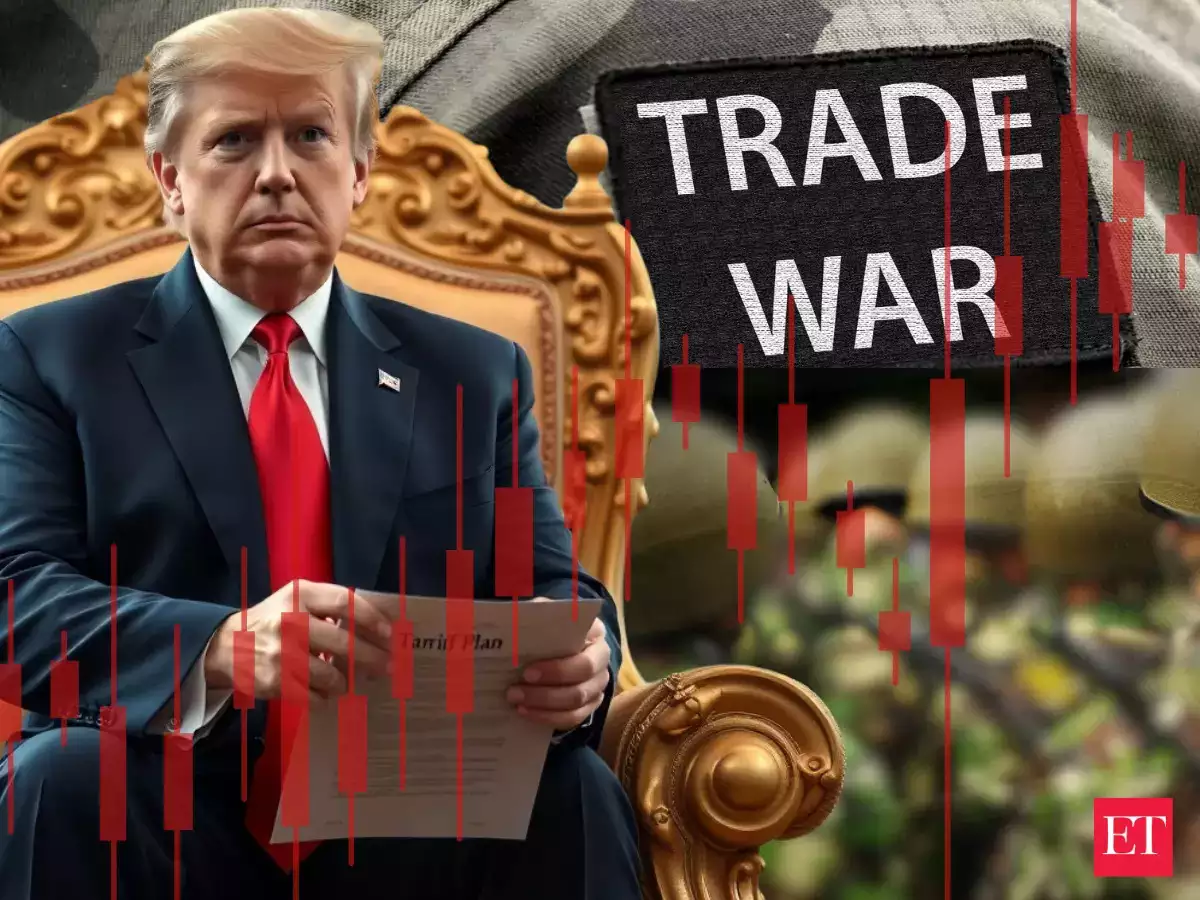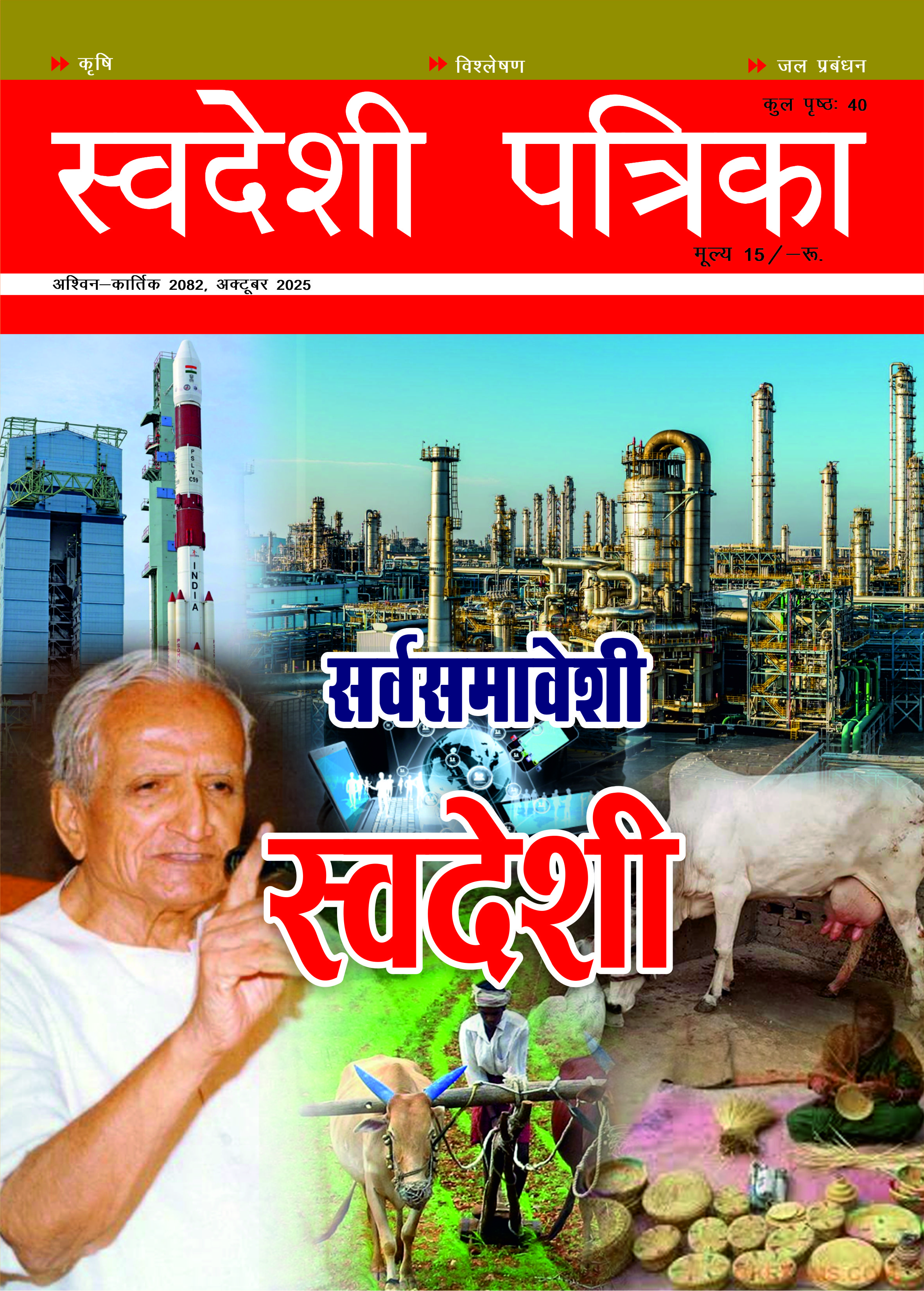
Paralyzed WTO: Can it Survive?
Today the entire free trade system is going through a major crisis. In such a situation, the countries of the rest of the world will have to conduct international trade keeping in mind the interests of their respective countries, which may not necessarily be based on free trade. — Dr. Ashwani Mahajan
The WTO was born in the 1990s as a symbol of globalization. It was said that the world is like a village, and therefore, unhindered free flow of not only goods and services but also capital should be ensured; so that the cheapest goods and services can be made available to the people across nationalities. It was also said that free flow and adequate availability of capital will improve the possibilities of development in developing countries as well. The specialty of the WTO was that through it, the conduct of international trade was made rule-based. That is, if a country was not behaving in accordance with the WTO agreements, that is, it is imposing higher tariffs or, imposing barriers or obstacles on goods coming from foreign countries, against WTO rules, then legal action can be taken against that country.
However, from the very beginning, developing countries were apprehensive about the stated benefits of WTO, because they felt that they would not be able to protect their industries and agriculture properly through tariffs and other types of barriers, against competition from highly subsidized agricultural products from foreign countries. Not only this, it would no longer be possible to save the economy from the ill-effects caused by the agreements related to TRIPS, TRIMS, services and agriculture, especially health security, security of agriculture and farmers and security of their industries.
Most economists kept applauding the rule-based international trade as a boon in view of the benefits arising from the formation of WTO and the unhindered movement of goods and services due to the same. But the disadvantages caused by the new agreements made under GATT in that era of globalization were either not studied properly or were ignored.
But for the last 8 years, since Donald Trump, first took over as President of USA, the WTO, which was a major tool for conducting global trade, has been losing its sheen. The decisions taken by the US President Donald Trump, in the very beginning of his second inning, have further accelerated the pace of WTO's decline. Concerns are being expressed all over the world, about the future of WTO. Interestingly, those who considered WTO to be a symbol of human welfare, development and smooth world trade are now debating, how soon WTO will see its end.
There is no doubt that the World Trade Organization is now paralyzed. The process of paralysis of the World Trade Organization had started with the Doha Development Round, started at the Doha Ministerial Conference of WTO. In the Doha Conference, developing countries raised the issue that since developed countries are economically strong, development process in developing countries is obstructed due to unequal trade. Therefore, international trade rules need to be amended, with a view to speeding up the development of developing countries. With this, the talks of the Doha Development Round, started in WTO. Developed countries had no interest in this and due to their indifference, the Doha Development Round ended without a conclusion. Developing countries including India, obviously were disillusioned with what has been happening in WTO.
But it was not just that the developed countries were indifferent about the problems of the developing countries, US developed a feeling that, it had got all, what it desired from WTO. Their corporate are now receiving much more royalty and technical fees than before, as intellectual property regime, post WTO establishment, favoured companies, mostly from US, who owned majority of patents and other IPRs. US companies got ample opportunities to invest in developing countries and US agricultural products started getting unprecedented market access in the developing countries. But after China's entry into WTO since 2001, and its economic rise, Chinese goods started capturing US markets and US faced huge trade deficit in foreign trade with China. US also started grumbling that due to WTO's dispute settlement system, its losing many disputes, with other member countries.
In the past, America used to make financial contributions to various international institutions including numerous organizations of the United Nations, World Health Organization, World Bank, International Monetary Fund and many other organizations. But, since Donald Trump became President for the first time, US started developing the impression, that financing these institutions with American taxpayers' money is not in America's interest. As a part of its strategy, America obstructed the process of appointment of judges in the World Trade Organization. Due to this, the dispute settlement system of the World Trade Organization itself became almost paralyzed. It is well known that the dispute settlement process is an integral part of the rule-based system of the WTO. Due to this, it is no longer easy to ensure compliance with the rules in the WTO by the member countries. It can be said that the WTO has been becoming weaker due to the apathy of US and even it allies.
In successive ministerial conferences of the WTO, it has been becoming evident that US has no interest left in the WTO. But at a time when the developing countries including the rest of the world, except China, have suffered only in terms of their industrial development, due to glutting of their markets with Chinese products, but also lost their freedom or sovereignty to make laws for public health and international trade in the name of free trade and globalization, and WTO was the only tool for them to access the world markets. In such a situation, they have been continuously working in the conferences of the WTO to make it effective.
But after the return of Donald Trump to power in America, the existence of the WTO itself is now in danger. After assuming the office of the President, Donald Trump has started making frontal attack on the global free trade system. The same America, which was at the forefront in the negotiations and formation of the WTO; and was the biggest advocate of free trade across the world, is now advocating protectionism; and arguing that since other countries of the world impose higher tariffs, US will also impose higher import duties, what he says ‘reciprocal tariffs’. With the declaration of this tariff war, the relevance of the WTO is getting eroded. It is important to mention here that at the time of formation of the WTO, India and other developing countries were given the flexibility that even if developed countries reduce tariffs, they can still keep high import tariffs. The average bound tariff (tariff which is allowed to be imposed under WTO rules), for India is 50.8 percent. Despite that, since 2006, India has actually been imposing a weighted average import duty of only 6 percent, which is much less than the bound tariff.
Although there is no justification for the US to impose retaliatory, what they call reciprocal import duties, but the US has the privilege in the WTO that it can impose country specific import duties, a privilege not enjoyed by others. By misusing this right, the US has now started challenging the entire system of free trade of the WTO. In such a situation, the world will have to think whether one-sided free trade can continue. Many experts have now started saying that the rest of the world, except the US, can strengthen the WTO by remaining in it. But perhaps this will not be practical. Today the entire free trade system is going through a major crisis. In such a situation, the countries of the rest of the world will have to conduct international trade keeping in mind the interests of their respective countries, which may not necessarily be based on free trade.


